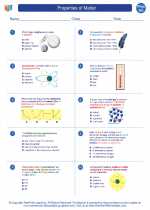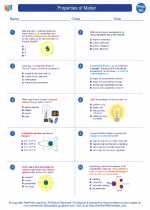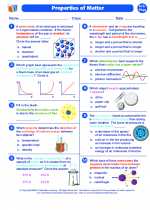Chain Reaction
A chain reaction is a self-sustaining series of reactions where the products of one reaction event stimulate further reaction events. Chain reactions are important in various fields, including nuclear physics, chemistry, and even in everyday life.
Types of Chain Reactions
There are two main types of chain reactions:
- Homogeneous Chain Reaction: In a homogeneous chain reaction, all the reactants and products are in the same phase (e.g., gaseous or liquid phase).
- Heterogeneous Chain Reaction: In a heterogeneous chain reaction, the reactants and products are in different phases (e.g., solid and gas, or liquid and gas).
Examples of Chain Reactions
Some common examples of chain reactions include:
- Nuclear Chain Reaction: Nuclear fission reactions in nuclear power plants and atomic bombs are examples of chain reactions.
- Chemical Chain Reaction: The combustion of hydrocarbons (such as in a car engine) and the polymerization of ethylene to form polyethylene are examples of chemical chain reactions.
- Biological Chain Reaction: Enzyme-catalyzed metabolic pathways in living organisms involve chain reactions.
Factors Affecting Chain Reactions
Several factors can influence the behavior of a chain reaction, including:
- Concentration of Reactants: Higher concentrations of reactants can lead to faster chain reactions.
- Temperature: Higher temperatures generally increase the rate of chain reactions.
- Inhibitors and Catalysts: Substances that inhibit or promote the chain reaction can also affect its rate and outcome.
Study Guide
To better understand chain reactions, consider the following study guide:
- Research the historical development of the concept of chain reactions in chemistry and nuclear physics.
- Study specific examples of chain reactions in different fields and their practical applications.
- Investigate the role of chain reactions in industrial processes, such as polymerization and combustion reactions.
- Explore the impact of chain reactions on environmental and societal issues, such as nuclear energy and waste management.
- Conduct experiments or simulations to observe and analyze the factors influencing the rate and sustainability of chain reactions.
By delving into these aspects, you can gain a comprehensive understanding of chain reactions and their significance in various scientific disciplines.
.◂Physics Worksheets and Study Guides High School. Properties of Matter
Worksheet/Answer key Properties of Matter
Properties of Matter  Worksheet/Answer key
Worksheet/Answer key Properties of Matter
Properties of Matter  Worksheet/Answer key
Worksheet/Answer key Properties of Matter
Properties of Matter  Worksheet/Answer key
Worksheet/Answer key Properties of Matter
Properties of Matter 

 Worksheet/Answer key
Worksheet/Answer key
 Worksheet/Answer key
Worksheet/Answer key
 Worksheet/Answer key
Worksheet/Answer key

The resources above cover the following skills:
Concepts of Physical Science: A student should understand and be able to apply the concepts, models, theories, universal principles, and facts that explain the physical world. A student who meets the content standard should:
Develop an understanding of motions, forces, their characteristics and relationships, and natural forces and their effects.